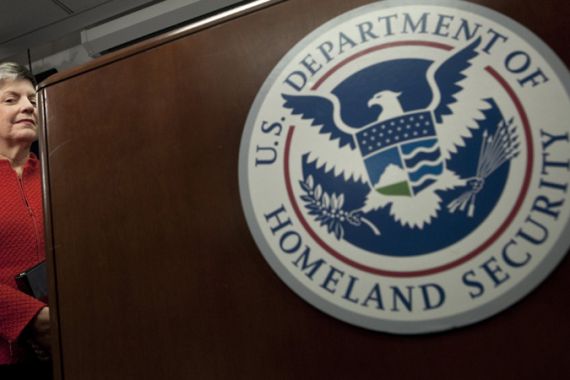Threats remain despite US intel changes
A decade after the intelligence failure of preventing the 9/11 attacks, analysts say not much has improved.

| Questions remain regarding how the US intelligence community failed to thwart the 9/11 plot [Al Jazeera] |
A short drive from the US capital, Washington, is the suburb of McLean in the state of Virginia. It is fairly unremarkable. It has the usual collection of dry cleaners and auto shops, cafes and stores. And it is also the new front line in making American safe.
From the road, it is possible to see the corner of a fairly modern-looking building, which since April 2008 has housed the office of the Director of National Intelligence. On the road, there is nothing to suggest what is there – no signs, no flags. Those who have been inside describe it as a high-tech spy centre and compare the operations room to a movie set.
Creating the position of Director of National Intelligence (DNI) was recommended by the commission investigating the 9/11 attacks.
It had pinpointed intelligence failures that could have stopped the attacks. No one joined the dots and saw the whole picture. No one got the warnings that something serious was about to happen. So the intention was the DNI would ensure everyone shared any intelligence they had, that there could be no more turf wars of people protecting their own investigations. It was, one expert explained to me, “the office created to make sure there are no more screw ups”.
Now that post has overall responsibility for the intelligence operations in 16 organisations, including the CIA, the FBI and the Department of Homeland Security.
Threats remain
Rick Nelson is a former navy officer who worked at the Pentagon after the 9/11 attacks. Now he is an independent analyst, the director of the Homeland Security and Counterterrorism programme at the Centre for Strategic and International Studies in Washington. He believes the changes that have been brought in have made the US safer.
“Many of the reforms that have happened since September 11 have improved the efficiency of the intelligence community, improved the analytic capacity and capability of the community; it’s definitely a much stronger and better organisation than what it once was,” he says.
But the changes cannot eliminate the threats. Umar Farouk AbdulMutallab almost blew up a US-bound airliner on Christmas Day 2009 when he tried to ignite explosives he had smuggled on board in his underwear.
His name was well-known to the intelligence agencies, they call it reg-flagged here, but no one took the action that would place him on a “no-fly” list.
Then there was the US Army Major Nidal Malik Hasan, who grew ever more angry at the country he called home and its operations in Iraq and Afghanistan. Internal army reports showed officers within the army had discussed Hasan’s tendencies toward what was described as “radical Islam” since 2005. On November 5, 2009, he opened fire on a Texas army base, killing 13.
‘Weak office’
One of the problems is that the DNI has no real power over the other organisations. He cannot tell them what to do or what areas and resources to spend their money on.
Loch Johnston of the University of Georgia is also the editor of the academic journal Intelligence and National Security. He is concerned that not only have there been lapses, the office of Director of National Intelligence will not make it any better.
“Imagine you had a barrel with 16 stays on it but no hoop around it. That’s what we’ve got now,” he says.
“The missing hoop is a strong manager in charge. So we certainly have a new office called the Director of National Intelligence since the law passed in 2004 but it remains a weak office.”
He believes the internal turf wars that have been pinpointed as one of the reasons the 9/11 attackers succeeded were again working behind the scenes.
“The idea was to give him managerial authority, by which I mean the power to hire and fire people and control over the budgets,” he says.
“But it failed because as that bill was making its way through Congress it was ambushed by the defence department and its allies on the hill and it was greatly diluted. After the bill came out it turned out that new Director of National Intelligence really didn’t have the authority that reformers envisioned.”
After 9/11, the US vowed never to be caught out like that again, but everyone knows and accepts that the next attack is not an if, but a when. The country is on alert, on guard and now always will be. The next success will be an intelligence failure – and no one wants to contemplate what that will mean and how many lives it may cost.